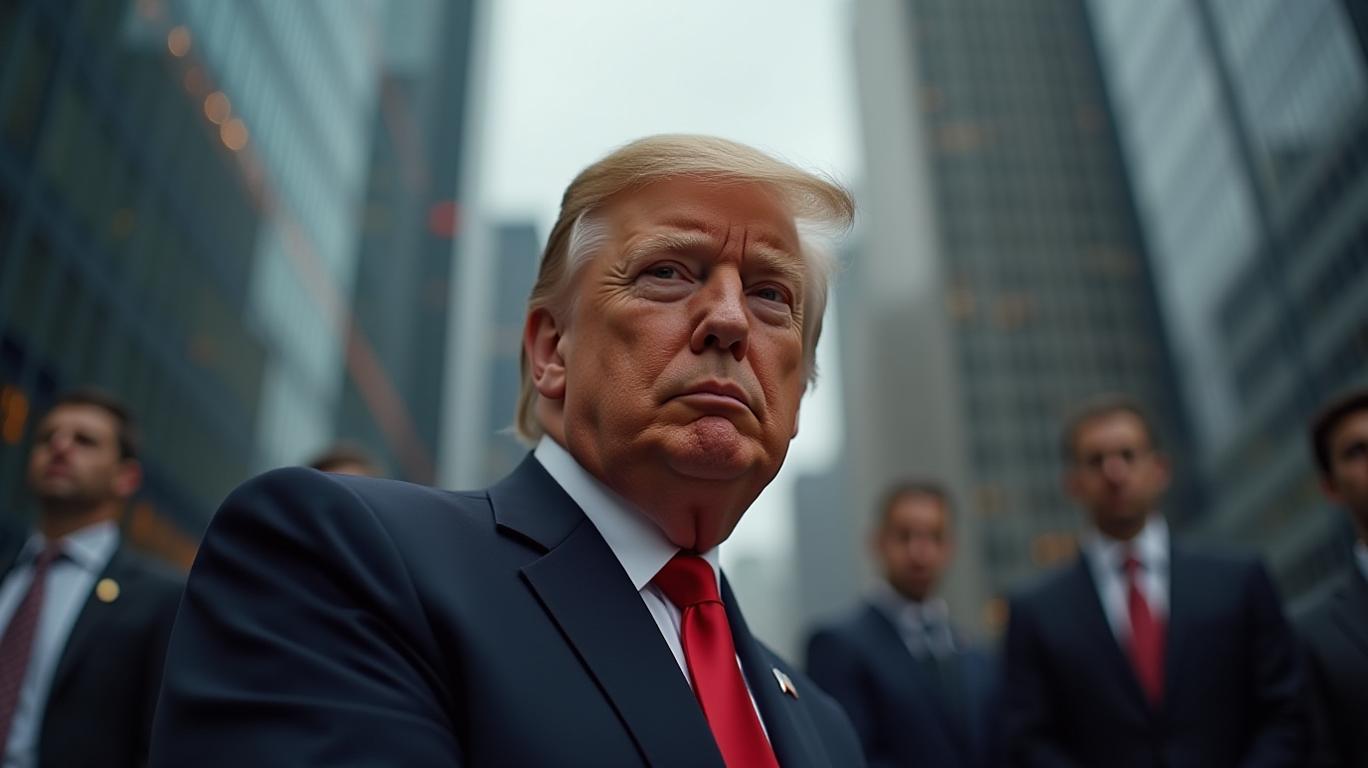Trump's 54% Tariffs Spark 4% Bitcoin Drop
U.S. President Donald Trump's announcement of targeted reciprocal tariffs against various countries, including China, Vietnam, Japan, India, Switzerland, and the European Union, had an immediate and significant impact on the cryptocurrency market. The news led to a sharp reversal in the market, wiping out the gains that had been made earlier in the day. Bitcoin, which had climbed to $88,500, quickly fell back to the daily opening price of around $85,100 before sliding further after the speech. This volatility was not limited to Bitcoin; other major cryptocurrencies such as Ethereum, Solana, BNB, XRP, and Dogecoin also experienced similar declines.
Trump's decision to impose a 54% total tariff rate on imports from China, effective April 9, was a significant move that added to the existing 20% tariffs, bringing the total to 34% in reciprocal tariffs. This aggressive stance was part of a broader strategy to address what Trump perceived as unfair trade practices by other countries. The tariffs were framed as a means to supercharge domestic industrial production, open foreign markets, and ultimately lower prices for consumers. Trump's rhetoric was optimistic, suggesting that these measures would usher in a "golden age" for the U.S. economy, with jobs and factories returning to the country.
The impact of these tariffs was immediate and far-reaching. The cryptocurrency market, which had been experiencing a rally, saw a sudden reversal as investors reacted to the uncertainty and potential economic fallout. Bitcoin, which had been on an upward trajectory, lost its gains, reflecting the broader market sentiment. The tariffs were part of a larger executive order signed by Trump, which he described as a historic move towards economic independence. The order aimed to address what Trump viewed as unfair trade practices by imposing reciprocal tariffs on countries that levied higher rates on U.S. goods.
The announcement also had implications for other sectors, including the automotive industry, where Trump confirmed a 25% tariff on auto imports starting at midnight. This move was part of a broader strategy to protect domestic industries and encourage greater domestic production. The tariffs were not without criticism, with some analysts and politicians warning of potential economic turmoil and higher consumer prices. However, Trump remained steadfast in his belief that these measures would ultimately benefit the U.S. economy by reducing trade deficits and encouraging domestic manufacturing.
The cryptocurrency market's reaction to Trump's tariffs underscores the interconnected nature of global economies and the sensitivity of digital assets to broader economic policies. As the U.S. continues to navigate the complexities of international trade, the impact on cryptocurrencies and other financial markets will remain a key area of focus for investors and policymakers alike. The resulting clarity around the tariffs could alleviate the market uncertainty that has held investors at bay, potentially leading to a more stable market environment in the future. However, the immediate reaction to the news has been negative for Bitcoin and equities, highlighting the need for continued vigilance and adaptability in the face of changing economic conditions.

Quickly understand the history and background of various well-known coins
Latest Articles
Stay ahead of the market.
Get curated U.S. market news, insights and key dates delivered to your inbox.



Comments
No comments yet